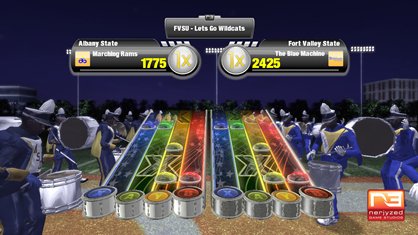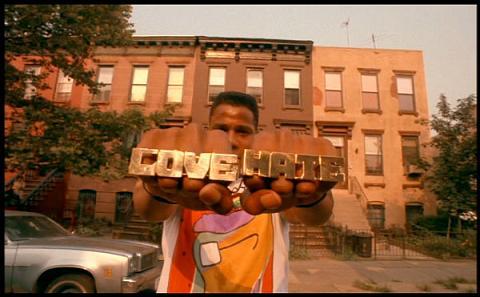This post has not been edited by the GamesBeat staff. Opinions by GamesBeat community writers do not necessarily reflect those of the staff.
I tend not to get very personal with anything in private, let alone in public. Nothing more telling of that than the fact it took me nearly three months to write this. I'm not opening up with this experience with any degree of comfort. I did want to make it clear from the opening what I am doing and what I'm not attempting to do. This is a personal experience and thoughts relay during said experience and the conclusions drawn are specifically my own. If you take issue with any, feel free to do so and voice it, but the purpose of telling the story isn't to persuade someone to a side of an issue so much as relay the experience of a person that ran from tackling an experience important to him for likely the wrong reasons. I'm still not sure. I do hope that my story does inspire people to think about the idea of purpose in the things we do.
Stepping out of a taxi fresh off from dropping off the panelists (Naomi Clark, Latoya Peterson and N'Gai Croal) from the Games and Social Justice panel from dinner, I felt a load of weight on me. Not from my burnt orange Texas Longhorn backpack loaded with equipment for covering South by Southwest Interactive and the attached tripod hanging from the side. Not from an interview that turned into me being a fly-on-the-wall in a dress rehearsal in which I occasionally buzzed in the rare pause in those few hours. That was a great thing being I couldn't attend the panel the next day.
The weight was from several months earlier. From feeling I had failed to do my job, no matter how amateur I actually am at this point. I failed many of the things I learned in college. More than anything I failed one the basic cores of journalism: see an issue and inform your audience of it and the facts behind it.
It was a relatively easy thing to brush to the side if I wanted. The game was so-low profile, many people that cover games didn't really know what it was. Not that anyone knew the game would be upon announcement — though a first effort from a new studio is often more miss than hit — but it being bad, if not broken, didn't help that cause. Deeming it not even worth the potential trolling that just mentioning the social issue at hand would bring took little to no effort. Especially considering my previous experience trying to approach the subject of racial issues in video games ended in such a disaster.

The game in question was Black College Football: The Xperience. The issue was a trend of comments that tended to meld some combination of historical ignorance and racism at it's very existence when the project was announced a few years back. One commenter claimed the black college football experience already existed; NCAA College Football. Others decried the very idea of such a game itself was racism. Both sentiments display either ignorance or completely dismissive attitudes toward the facts that the historically black colleges and universities highlighted and featured in the game were born of racism toward blacks and other ethnic minorities under "separate but equal" law and there's a distinct atmosphere and experience these black colleges have, the founders of the developing company made the game in part to recreate, that EA's game never attempted when they still included these schools. Which, in fairness to EA, probably would be an unreasonable expectation to create the exact atmosphere of 100+ plus schools.
I talked to some friends and people I respected about the subject while I was trying to write it up, to gauge the interest. My black friends and many people I had met through the Multicultural Information Center at the University of Texas were very interested and encouraged my tackling that issue and explaining that history. The one few whom were a little less enthusiastic, mostly white, had some reservations. Maybe not necessarily about the story idea and history, but definitely about the game itself.
One conversation with an person that vividly sticks out was one was with ta person working on a student produced video game show in which I had previously been a talent and segment producer. He's an absolutely great, bright, creative and open-minded guy. I explained the game, a bit of the history and some of the concerns I had some of the reaction to it. His response was as sincere a question as he'd ever asked me.
"Does it need to exist?"
My reaction was somewhat perplexed. We're talking at the end of the day about an entertainment medium that's a luxury. There's not a video game that's ever needed to exist. I expressed that thought to him.
"You know what I mean."
He was right. I knew exactly what he meant. I'm pretty familiar with what lies beneath that as I've encountered it since being a preteen. As I was getting into hip-hop, Spike Lee movies and gravitated to things of and about my culture, my other friends were getting into Star Wars movies, John Hughes films and other things considered typical of kids growing up in the late 80's and the 90s.
The really feel good Cosby, Run DMC, Fresh Prince stuff was very easily embraced. The non-MTV friendly gangsta rap, political rap, Do The Right Thing, Malcolm X, critical of the world as it was presented in far less cynical time than now things? That stuff never needed to exist.

The was a game that by it's very nature would make certain people uneasy because the very existence of the these schools is a reminder of a history and practices many in this country, and in my very home state of Texas, that many would love to write out of history books and forget. Much of that probably has to do with some people that take anything, including documented facts, that might fly in the face of the superiority complex many Americans have historically loved to display in the face of the rest of the world. But part of it also has to do with the lack of an actual racial dialogue in this country. Much like a fanboy-flame-war, it too often deteriorates into needless name-calling and self-defeating attitudes that the other party can't or will never try to understand. Granted, if our present day media is anything indication, I'm not sure if I should have the faith in honest, open, mature discussion about much important these days.
I explained to this concerned person that the game makers were graduates of the schools in question whom made the game partially out of pride, partially to display the culture, and also to serve a community that hasn't been served by the EA Sports college football game in several years because their subdivision was taken out.

He still wasn't completely comfortable with the idea of the game being put there with how it was making some people feel. Which I respect. It's an honest reaction and perfectly valid. I do often wonder if a lot of the people that shared his concern remotely take as seriously the concerns of women, gays, and ethnic groups in the standard in the standard hardcore game. Because I hear a lot of cries of oversensitivity on those fronts. Not from him that I'm aware of, however.
But coming across that mentality left me a little more than discouraged. What was the purpose of writing an article to educate readers on a background and history in which many of the people that cared probably already knew and the people might not be aware also didn't seem to particularly care? Which begged the question of what the purpose of a games journalist in the first place and if I, 28 and about to turn 29, at the time had any business still attempting to try and break into it anymore? I was already relatively old compared to some of the people whom weren't already established that have broken in recently. It probably wasn't going to help the cause of trying in a niche of journalism painfully lacking of people of my background, as much socioeconomically as far as what I've known so far as ethnic, to be garnering a reputation of being "the black guy that has to bring up race" well before proving myself enough to actually make a living doing any of this.
So I shelved it.
I can probably say I was rather depressed on the bus downtown the next day. I had awful guilt from the night before. I'd done a bunch of interviews that looked more and more that weren't going to be published. Ironically the two that were most personally impactful and I looked the most forward to were part of that group and are being referenced in this story. I was physically worn from covering the event by myself on top of working a full-time job overnight. My mindset was I never would have expected to be in that day. It was the last day of the video game portion of the event, the Xbox Live party, the interviews with the two people I most wanted to meet; two people I absolutely respected in Karen Chu and Matt Chandronait. In the case of the Chandonait, someone I not only respected but also really looked up to.
As I sat on a table across from Matt at a 3rd Street cafe about a block away from the Austin Convention Center, I was feeling pretty miserable and like I didn't have what it took to even make it. But I pulled out my microphone and put on my best face because ultimately I was still very happy he put aside the time for me. He'd been sick most of his stay in Austin prior to that time and really didn't need to keep the interview appointment at all. We talked about the {Power Ups and The Press panel he participated in, Area 5 and at a certain point — after the interview proper — the Games and Social Justice panel came up.

I presented my own little crisis of conscience that resulted from it. Matt, being Matt, in a short conversation restored my faith in what I was doing. For starters, my presenting the story was the first he'd ever heard of the gam and an idea he thought was fairly interesting as well the backstory behind the developers. He gave me the feeling and confidence it was a worthwhile idea, but also the reassurance that my trepidations about running with the story and ultimately not going with it didn't make me as awful a person as I had built in my own head. Yes, if you feel a social responsibility to bring a subject to people's attention and feel passionate about it, it's worth presenting to people even if there's some potential resistance. That said, not everyone is prepared to take up those things and deal with whatever editorial or audience scrutiny that may come with. Being perfectly honest, at that point in time last fall, I wasn't prepared to do it. Which was very human. Something Matt reminded me of that and allowed me to feel okay with that. Something I very much thank him for doing.
I can happily say I'm a lot more comfortable in my own skin writing opinion pieces now. I'm not sure I can say any of them are good, but using Bitmob as an avenue to practice has definitely helped my confidence. Discussions in many an article comment section has also helped. And I think it's safe to say I've not shied from taking the occasional critical stance every so often. And though I'm currently trying to put my focus back onto reporting, my strength, I do hope to find the occasional topic I feel strongly enough to address seriously in the future.
Part of me still feels some need to redeem myself.
As for my purpose in writing about games? I'm not sure I know it yet. I'm not sure I need to be acutely aware of it. I enjoy it and so long I continue to love the process, that might in itself be reason enough. If I do find it one day, I'll let you know.
